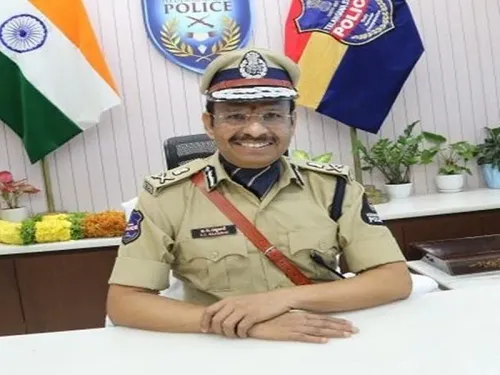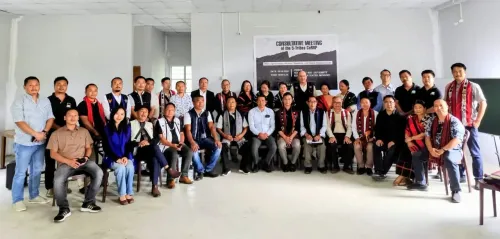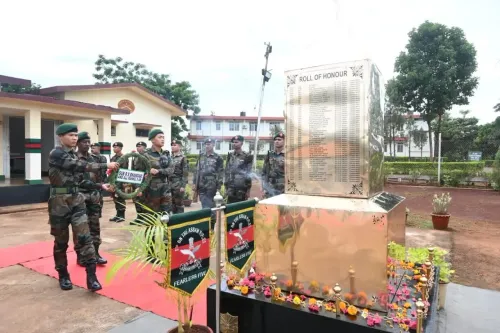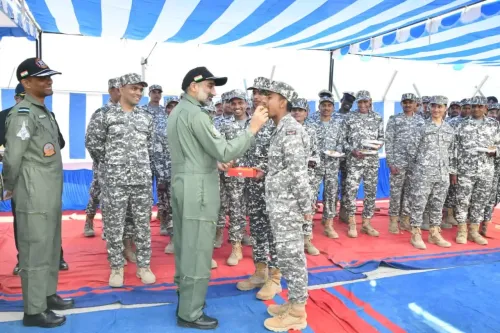How is Telangana Securing Support for the Young India Integrated Residential Schools Programme?
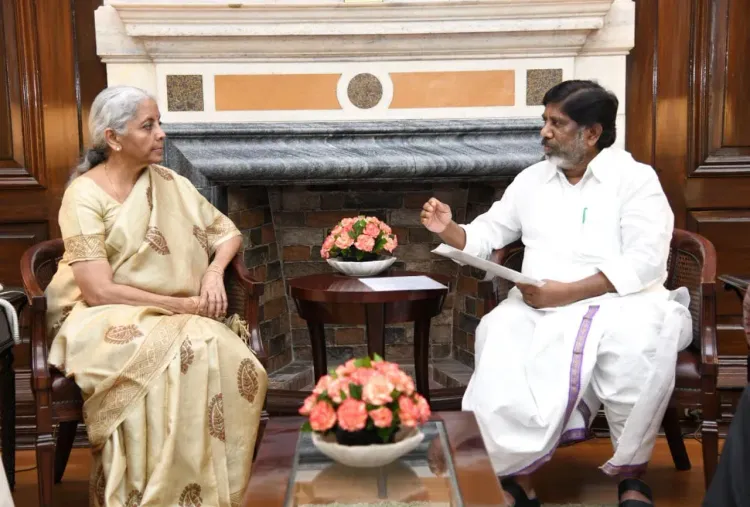
Synopsis
Key Takeaways
- Financial Assistance: Telangana seeks Rs 30,000 crore for educational reform.
- Empowerment: Program aims to uplift marginalized communities.
- Infrastructure Development: 105 modern residential schools to be established.
- Support for Government Schools: Initiative will aid 5,250 neighboring schools.
- Long-term Vision: Commitment to inclusive and equitable education.
Hyderabad, Sep 4 (NationPress) The government of Telangana has formally requested financial assistance and an exemption from the Fiscal Responsibility and Budget Management (FRBM) framework for its ambitious Rs 30,000 crore Young India Integrated Residential Schools initiative.
A team led by Deputy Chief Minister Mallu Bhatti Vikramarka met with Union Finance Minister Nirmala Sitharaman in New Delhi on Thursday to present this proposal.
Vikramarka, who also serves as the State Finance Minister, highlighted that this substantial investment aims to revolutionize education and nutrition for millions of children, uplift marginalized groups, and bolster India’s demographic advantage.
The delegation, which included Agriculture Minister Tummala Nageswara Rao, urged the Union Finance Minister to grant FRBM exemption for this long-term investment in human capital.
They informed Sitharaman that the programme was initiated to tackle the issues surrounding quality education and nutritious food for students.
It was pointed out that a significant portion of Telangana's population belongs to socially and educationally disadvantaged communities. According to SEEPEC data, 56.33% belong to Backward Classes, 17.43% to Scheduled Castes, and 10.45% to Scheduled Tribes.
The Deputy Chief Minister conveyed to Sitharaman that while Telangana is among the fastest-growing economies in India, its performance in education and nutrition remains unsatisfactory. These disparities have hindered poverty alleviation efforts.
He elaborated that while previous administrations established numerous residential schools for SC, ST, BC, and minority students, most operate from rented spaces or inadequate facilities. These institutions lack essential infrastructure and educational resources.
To fill these gaps, the state government has developed the Young India Integrated Residential Schools policy. This plan includes the establishment of 105 modern, technology-driven residential campuses, each designed to accommodate about 2,560 students from grades 5 to 12.
These institutions will directly benefit 2.7 lakh students and function as support hubs for approximately 5,250 nearby government schools. Vikramarka explained that this initiative will indirectly benefit nearly 4 lakh students.
The Deputy Chief Minister emphasized that the Young India Integrated Residential Schools initiative aims to create a world-class learning environment for underserved children in Telangana, aligning with India's vision for inclusive and equitable education.
The projected financial outlay for this extensive education policy is ₹30,000 crore, with ₹21,000 crore earmarked for constructing 105 campuses and ₹9,000 crore allocated for supplementary investments in the education sector. These supplementary investments include enhancing government junior colleges, degree colleges, technical and vocational education institutions, and digital infrastructure to elevate the Telangana education system to global standards.
To secure these funds, the state government plans to raise loans through a specially established corporation for construction and related investments. Bhatti Vikramarka requested that these loans be exempt from state FRBM limits, as they represent long-term capital investment in human development rather than routine expenditures.
“The Telangana government views this initiative as the most significant investment in children and youth ever undertaken. We firmly believe that with the Centre's backing, these schools will set a national standard,” he stated while also appealing for assistance from the central government.
Additionally, the Deputy CM requested the Union Finance Minister to relax the loan limits imposed on the state due to its financial challenges, especially concerning the high-interest loans incurred by the previous administration.
The delegation also urged Sitharaman to increase duties on palm oil, as farmers are currently suffering from decreased duty rates.

